
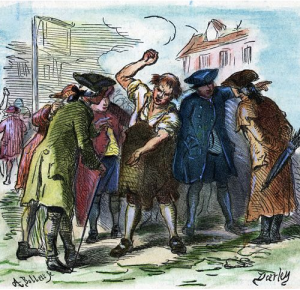
There were twelve years between the signing of the Treaty of Paris on February 1763 and the ride of Paul Revere on April 1775. Tension and anger between colonists and the empire increasingly rose to the point of no return. During the short period of 1762-1770 the causing disruption in its colonial policy. Furthermore, it found itself fighting wars in Europe, West Indies and Asia which drastically increased the cost of servicing its national debt. At the top of its agenda was the lightening of the burden on British …
Read the full story »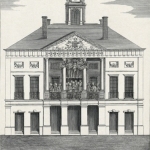
The Stamp Act Congress met in the Federal Hall building in New York City between October 7 and 25, 1765. It was the first colonial action against a British measure and was formed to protest the issued by British Parliament on March 1765. The Stamp Act Congress was attended by of nine of the thirteen colonies. Virginia, North Carolina and Georgia were prevented from attending because their loyal governors refused to convene the assemblies to elect delegates. New Hampshire did not attend but approved the resolutions once Congress was over.
Federal …
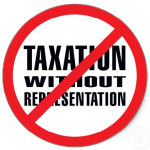
The Navigation Acts were trade rules that governed commerce between Britain and its colonies. The first of the Navigation Acts existed for almost two centuries and was repealed in 1849. The laws were designed to protect British economic interests in colonial trade and to protect its industry against the rapidly growing Dutch navigation trade.
The purpose of the Molasses Act was to protect British West Indies exports to the American colonies from the more fertile French and Spanish islands of Martinique and Santo Domingo. It was not designed to raise revenue …
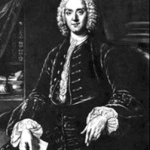
During the first eight years of King George III reign the British government had six ministries. British politics was in a state of chaos and political infighting between Whig groups disrupted colonial policy.
In the last years of King George II, Britain was unified under the leadership of William Pitt who had led Britain to war against the French in North America and India. The war had been costly and Britain was highly indebted however Pitt wanted to declare war on Spain before Spain attacked Britain. Not finding support among George …
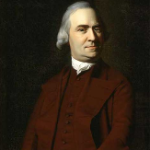
Representatives from nine colonies attended the Stamp Act Congress.
From Massachusetts: James Otis, Samuel Adams, Oliver Partridge and Timothy Ruggles.
From Rhode Island: Henry Ward and Metcalf Bowler
From Connecticut: William Johnson, Eliphalet Dyer and David Rowland.
From New York: Phillip Livingston, William Bayard, John Cruger, Robert Livingston and Leonard Lispinard.
From Pennsylvania: John Morton, George Bryan and John Dickinson.
From New Jersey: Hendrick Fisher, Robert Ogden and Joseph Gordon.
From Delaware: Caesar Rodney and Thomas McKean.
From Maryland: Edward Tilghman, Thomas Ringgold and William Murdock.
From South Carolina: John Rutledge, Thomas Lynch and Christopher Gadsden.
Secretary: John Cotton
President: Timothy …
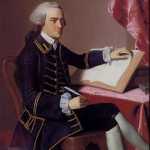
Samuel Adams (1722-1803)
A graduate from Harvard College, unsuccessful businessman and tax collector, entered politics to coordinate efforts against as a leader of . The Sons of Liberty were responsible for the , he was portrayed as a master of propaganda. He was an official of the Massachusetts House of Representatives and one of the founding fathers of the United States. He was a cousin of President John Adams.
Samuel Adams
James Otis (1725-1783)
James Otis graduated from Harvard College. He was a top lawyer in Boston and became known as an opponent …
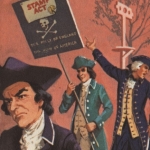
The was nullified before it went into effect and was repealed by parliament on March 18, 1766 under the Marquis of Rockingham.
In the summer of 1765 King George III fired George Grenville and replaced him with Charles Watson-Wentworth, Marquis of Rockingham. For the new Prime Minister the only alternative to repealing the tax was a long and costly civil war with the American colonies. Britain, as the world greatest power, could not give up on the decision to uphold the tax and give in to mobs and activist in its …
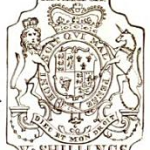
What was the Stamp Act?
The Stamp Act was a tax imposed by the British government on the American colonies. British taxpayers already paid a stamp tax and Massachusetts briefly experimented with a similar law, but the Stamp Act imposed on colonial residents went further than the existing ones. The primary goal was to raise money needed for military defenses of the colonies.
This legislative act was initiated by the British prime minister and adopted by the British Parliament. The decision was taken on March 1765 but did not take effect until …
Let’s learn why the poor enforcement of the British Molasses Act of 1773 opened the door to corruption among local officials.
What’s the Molasses Act, Anyway?
First things first, let’s talk about what the Molasses Act was all about. Imagine you’re in the 1700s, and you really love your sweet treats. Well, back then, sugar was a big deal, especially for making rum. And molasses was a key ingredient for this sugary drink.
The British government wanted to make sure they were making the most money off this molasses action. So, they passed …
It Was All About Molasses: The Molasses Act was primarily concerned with the trade of molasses, a key ingredient in rum production. It imposed duties on imported molasses from non-British colonies, primarily the French and Dutch West Indies. This tax aimed to protect British sugar plantations in the Caribbean.
Designed to Promote British Sugar: The British government wanted to encourage the consumption of sugar produced in its own colonies, especially the West Indies. By taxing foreign molasses heavily, they hoped to make British sugar more economically appealing to colonial producers.
A Complex …
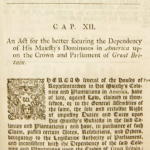
AN ACT for the better securing the dependency of his Majesty’s dominions in America upon the crown and parliament of Great Britain.
WHEREAS several of the houses of representatives in his Majesty’s colonies and plantations in America, have of late, against law, claimed to themselves, or to the general assemblies of the same, the sole and exclusive right of imposing duties and taxes upon his Majesty’s subjects in the said colonies and plantations; and have, in pursuance of such claim, passed certain votes, resolutions, and orders, derogatory to the legislative authority …
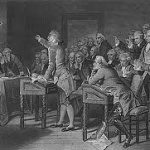
What was the Declaratory Act?
The Declaratory Act was a measure issued by British Parliament asserting its authority to make laws binding the colonists “in all cases whatsoever” including the right to tax. The Declaratory Act was a reaction of British Parliament to the failure of the as they did not want to give up on the principle of imperial taxation asserting its legal right to tax colonies.
When Parliament it concurrently approved the Declaratory Act to justify its repeal. It also declared all resolution issued by the null and void. This …